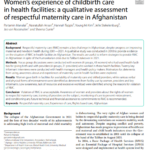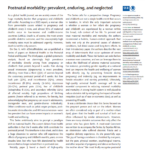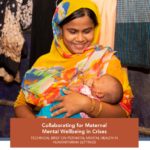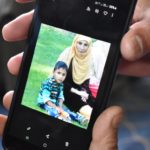Across the world, many women, newborns and their families experience disrespectful, abusive, or neglectful treatment during childbirth, and this extends to the postpartum period. In recent years, the Respectful Maternity Care movement has focused more attention on newborn care as it was seen as a gap in the care and well-being of women’s and children’s rights and health.
10
universal rights of women and newborns identified in the Respectful Maternity Care Charter
25
percent of children under the age 5 without birth registration (2011-2021)
All data on this page represents the most recent data available, unless otherwise noted. Please visit our Newborn Numbers page and download the Excel spreadsheet to explore the data further.
What can be done?
A small but growing amount of evidence suggests that newborns also do not always receive respectful, evidence-based care, which could have lasting implications on their health, and discourage their families from seeking subsequent care. This is especially important for small and sick newborns, who are at the highest risk of morbidity and mortality. Newborns’ experiences with caregivers can have significant and lasting impact— newborn babies feel pain and discomfort, and can experience emotional distress, particularly when separated from their families in the first hours of life. Good early care, including attachment and breastfeeding, has a lasting positive impact on the health and well-being of newborns throughout their lives. More research is needed to determine how widespread these issues are, how to better define mistreatment of newborns, and how to provide better care for all families as well as support to health care providers.
In October 2019, the Global Respectful Maternal Care Council, convened by the White Ribbon Alliance, launched Respectful Maternal Care Charter: the universal rights of women and newborns. The charter and new set of advocacy materials builds on the 2011 charter by emphasizing the shared needs of the maternal-child dyad, including zero separation between parents and newborns without consent, as well as recognizing newborn-specific elements such as the right to birth registration.
Key resources:
- Respectful Maternity Care Charter: Universal Rights of Women and Newborns
- WHO Recommendations: Intrapartum Care for a Positive Childbirth Experience (2018)
- WHO Recommendations on Antenatal Care for a Positive Pregnancy Experience (2016)
- Defining disrespect and abuse of newborns: a review of the evidence and an expanded typology of respectful maternity care
- Nurturing Care Framework
- Survive and Thrive Report
- Convention on the Rights of the Child
Other resources:








